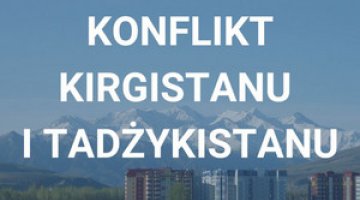Turkey’s Prime Minister visits Kyrgyzstan
On 1–2 February the Prime Minister of Turkey, Recep Tayyip Erdoğan, paid an official visit to Bishkek. This was the first visit by a foreign head of government to Kyrgyzstan since the overthrow of President Kurmanbek Bakiyev last April. Prime Minister Erdoğan’s visit, and his offer to the Kyrgyz government (aid for the democratisation of the country and economic reforms), shows Turkey’s ambitions to increase its political presence in Kyrgyzstan, and presumably throughout the entire Central Asian region.
During his stay in Kyrgyzstan, the Prime Minister of Turkey met President Roza Otunbayeva and Prime Minister Almazbek Atambayev, and visited one of the two Turkish universities in Bishkek. He also gave an address to parliament, during which he offered to share Turkey’s experiences of economic and political reforms. From Kyrgyzstan’s perspective, some clear effects of the visit were a grant of US$21 million, the announcement of significant investments, and a complete abolition of visas by the end of 2011.
Kyrgyzstan is in a difficult situation as a result of last year's coup and the bloody ethnic clashes in the south, and thus needs external assistance. The positive attitude of the country’s political elite towards Turkey (especially Prime Minister Atambayev) suggests that Bishkek may accept Ankara’s offer. A favourable atmosphere for cooperation has been created by the introduction of a parliamentary form of government in Kyrgyzstan last year (something of an exception in a region of authoritarian governments), which allows Ankara to present itself as a mentor and guide on the road to democratisation and economic modernisation. Prime Minister Erdoğan’s visit indicates that Turkey, which hitherto had primarily been present in Central Asia in the economic and educational spheres, has ambitions of a stronger presence in the political field as well. At the same time, however, the Turkish Prime Minister’s desire to include the head of the Russian government in these meetings is a clear signal to Moscow that the cooperation between both countries will not jeopardise the interests of Russia. <mmat>



